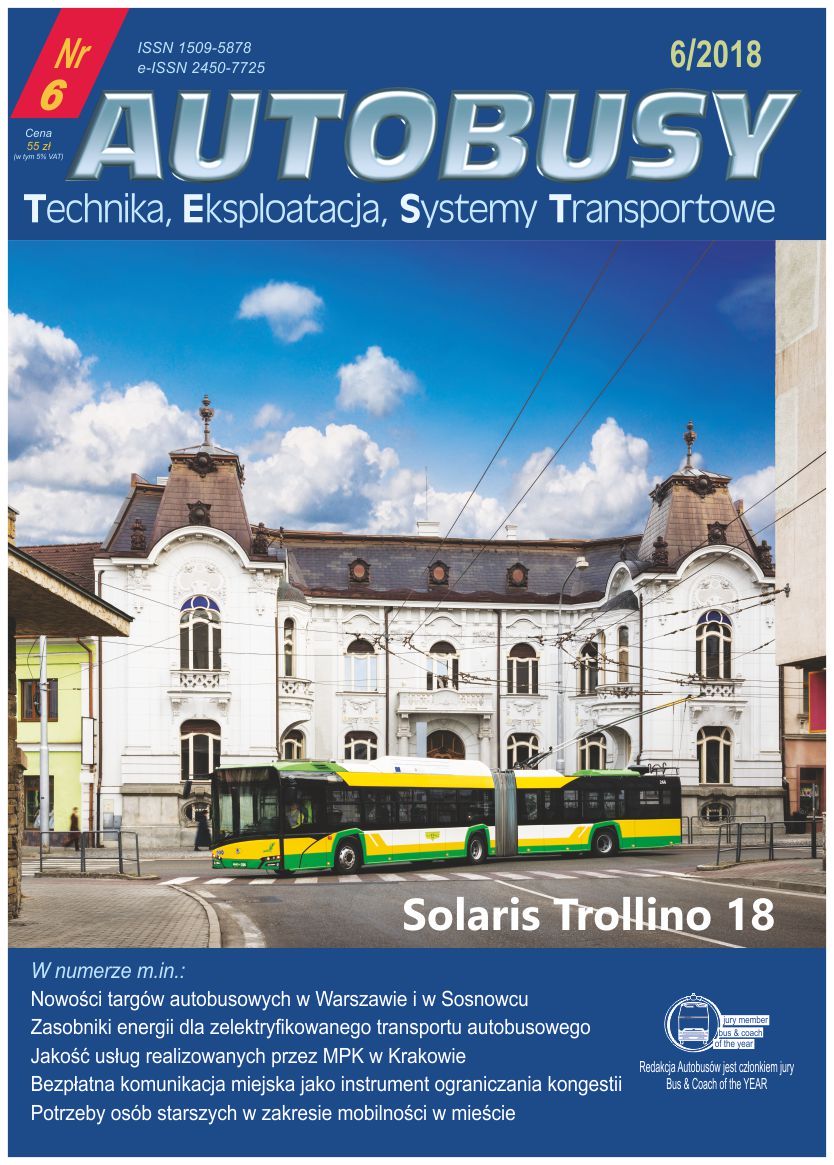Methods for evaluating the human factors influence on the safety in transport
DOI:
https://doi.org/10.24136/atest.2018.059Keywords:
accidents in transport, human factor, human reliability analysisAbstract
Safety is one of the main conditions for the functioning of the transport. The most attention is paid to the technical aspects of transport safety. However, accidents in transport are caused by many different factors and these primarily are: human factors, organizational factors, technical factors and environmental factors. Statistical data indicate that the main cause of accidents and disasters in transport are human errors. Thus, the elimination or reduction of their number could significantly improve the safety in transport. In the article the issues of human reliability in the context of ensuring safety are discussed. Additionally, the classification of human errors was given and an analysis of the causes of these errors was conducted. The main emphasis was put to present and evaluate of the selected methods of qualitative and quantitative Human Reliability Analysis (HRA), such as: THERP, ASEP, HEART, SPAR-H, ATHEANA, CREAM.
Downloads
References
Bedford T., Bayley C., Revie M.: Screening, sensitivity, and uncertainty for the CREAM method of Human Reliability Analysis. Reliability Engineering & System Safety, Volume 115, pp. 100-110, 2013.
Bedny G.Z., Harris S.R.: Safety and reliability analysis methods based on systemic-structural activity theory. Proceedings of the Institution of Mechanical Engineers - Journal of Risk and Reliability, Volume 227, Issue 5, pp. 549-556, 2013.
Boring R.L., Blackman H.S.: The origins of the SPAR-H method's performance shaping factor multipliers. Proc. IEEE 8th Conference on Human Factors and Power Plants/HPRCT 13th Annual Meeting, Monterey, CA, pp. 177-184, 2007.
Cloninger C.R., Svrakic D.M., Przybeck T.R.: A psychobiological model of temperament and character. Archives of General Psychiatry, Volume 50, Issue 12, pp. 975-990, 1993.
Cloninger C.R., Zohar A.H.: Personality and the perception of health and happiness. Journal of Affective Disorders, Volume 128, Issue 1-2, pp. 24-32, 2011.
Dąbrowska J.: Czynnik ludzki w lotnictwie. Prace Instytutu Lotnictwa 221, str. 66-70, Warszawa, 2011.
Gore B.F., Dukelow J.S., Mitts T.M., et al.: Conservatism of the Accident Sequence Evaluation Program HRA procedure. Risk Analysis, Volume 17, Issue 6, pp. 781-787, 1997.
Hawkins F.H., Orlady H.W. (Ed.): Human factors in flight. England: Avebury Technical, 1993.
Keightley A.: Human factors study guide. Palmerston North: Massey University, 2004.
Kim S.H., Hamann S.: Neural correlates of positive and negative emotion regulation. Journal of Cognitive Neuroscience, 19(5), pp. 776–798, 2007.
Kirwan B.: The validation of three human reliability quantification techniques THERP, HEART and JHEDI, Part I - Technique descriptions and validation issues. Applied Ergonomics, Volume 27, Issue 6, pp. 359-373, 1996.
Łukasik, Z., Ciszewski, T., Wojciechowski, J.: Power supply safety of railway traffic control systems as a part of international transport safety. Proceedings of the 16th International Scientific Conference Globalization and Its Socio-Economic Consequences, Rajecke Teplice, Slovakia, 2016, Part I, pp 1212-1219, 2016.
Marseguerra M., Zio E., Librizzi, M.: Quantitative developments in the cognitive reliability and error analysis method (CREAM) for the assessment of human performance. Annals of Nuclear Energy, Volume 33, Issue 10, pp. 894-910, 2006.
Merkisz J., Galant M., Markowski J., Karpiński D.: Ocena wybranych metod analizy niezawodności człowieka (HRA) w aspekcie ich wykorzystania w transporcie lotniczym. Logistyka 6/2014, 2014.
Nowakowski W., Ciszewski T., Łukasik Z.: The Human as the Weakest Link in Ensuring Technical Safety. Proceedings of the 17th International Scientific Conference Globalization and Its Socio-Economic Consequences, Rajecke Teplice, Slovakia, Part IV, pp. 1788-1795, 2017.
Nowakowski W., Łukasik Z., Bojarczak P.: Technical safety in the process of globalization. Proceedings of the 16th International Scientific Conference Globalization and Its Socio-Economic Consequences, Rajecke Teplice, Slovakia, 2016, Part IV, pp. 1571-1578, 2016.
Olpiński W.: Niezawodność człowieka w systemie sterowania ruchem kolejowym. Problemy Kolejnictwa – Zeszyt 173, 2016.
Pniewski R., Kornaszewski M.: Global safety of Traffic Control Systems in anthropotechnical aspects. 17th International Scientific Conference Globalization and Its Socio-Economic Consequences. Proceedings, Part IV. pp. 2012-201, 2017.
Ruiz-Moreno J.M., Trujillo H.M.: Models for assessment of human error in system reliability studies. Anales de Psicologia, Volume 28, Issue 3, pp. 963-977, 2012.
Saetren G.B., Hogenboom S., Laumann, K.: A study of a technological development process: Human factors-the forgotten factors? Cognition Technology & Work, Volume 18, Issue 3, pp. 595-611, 2016.
Thompson C.M., Cooper S.E., Kolaczkowski A.M., et al.: The application of ATHEANA: A technique for human error analysis. Proc. IEEE 6th Conference on Human Factors and Power Plants - Global Perspectives of Human Factors in Power Generation, Orlando, FL, USA, pp. 913-917, 1997.



